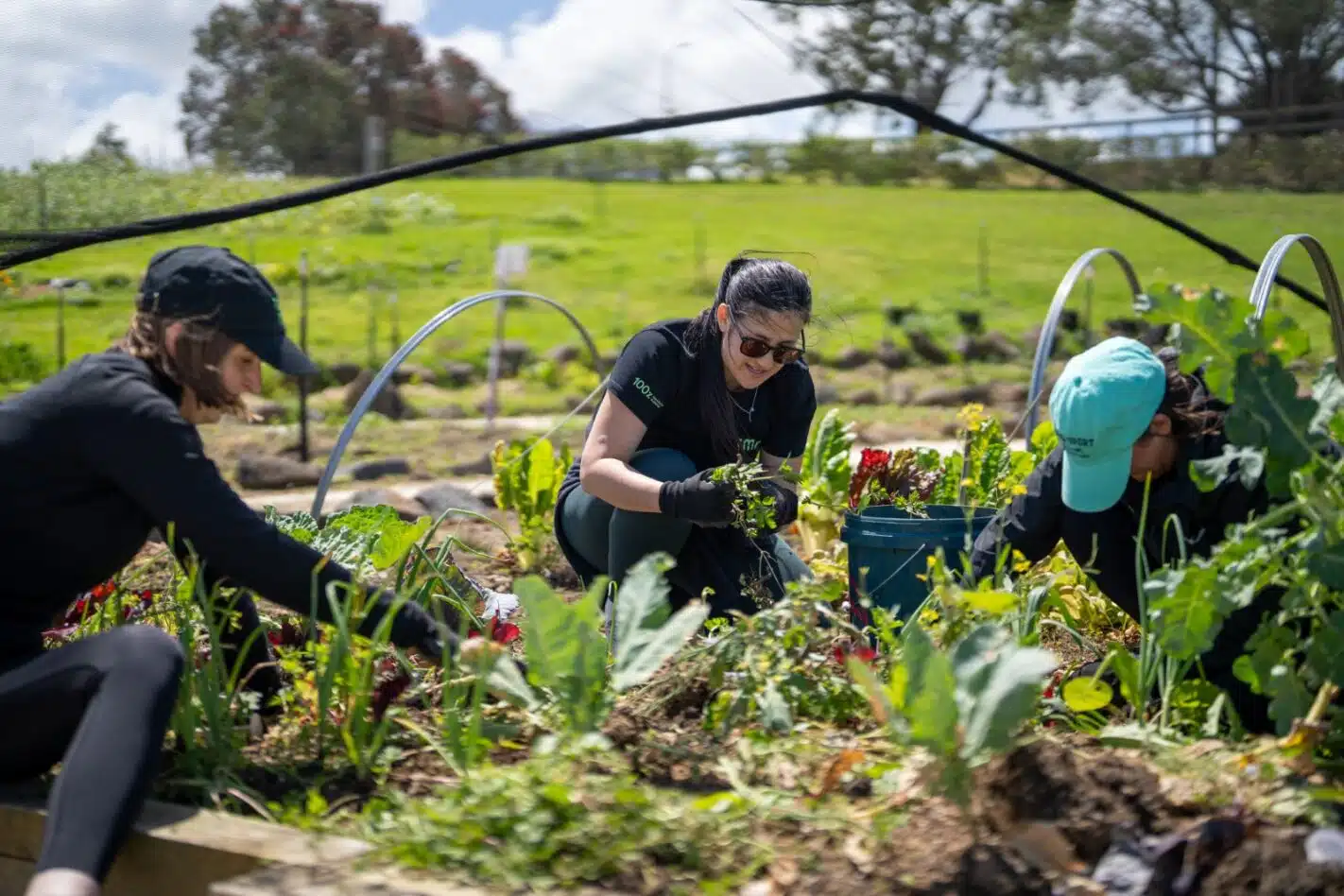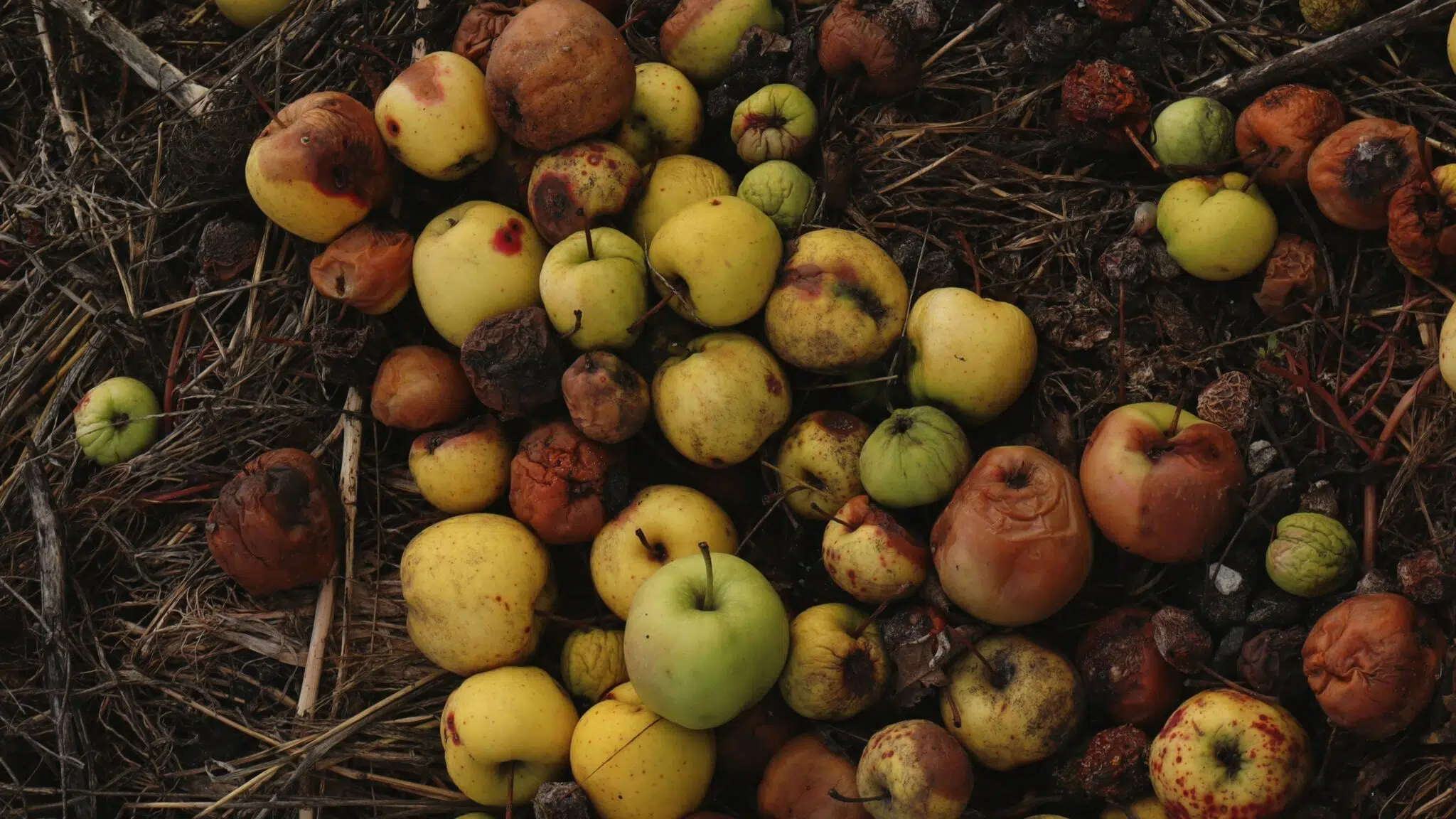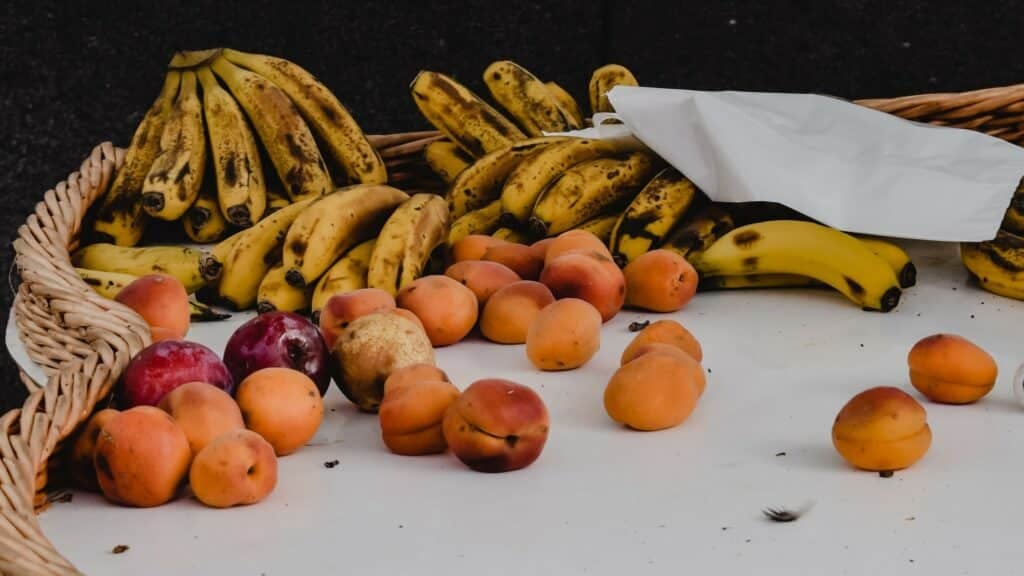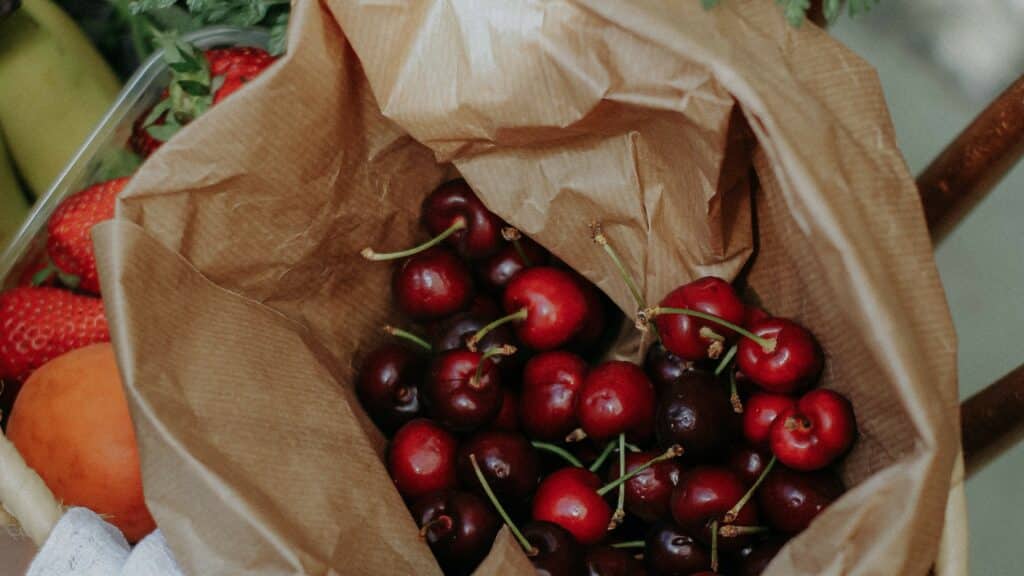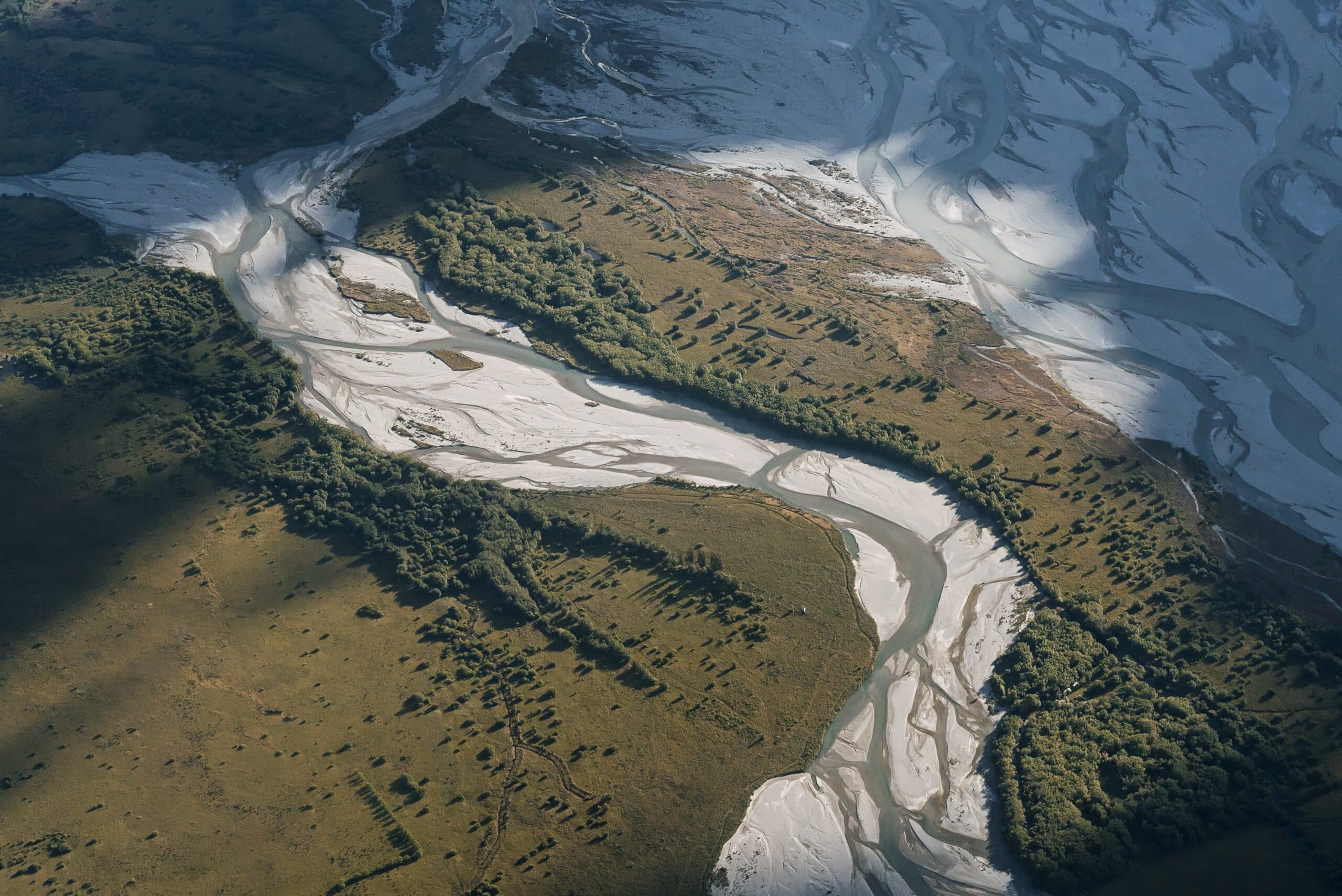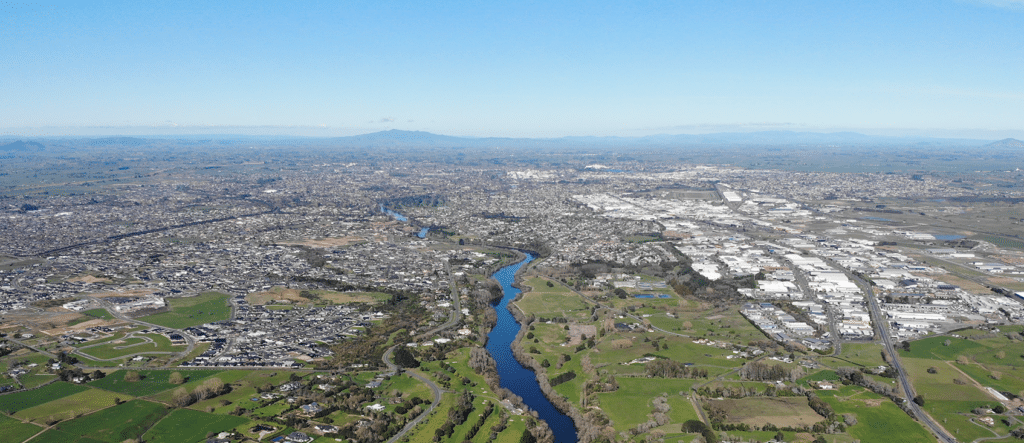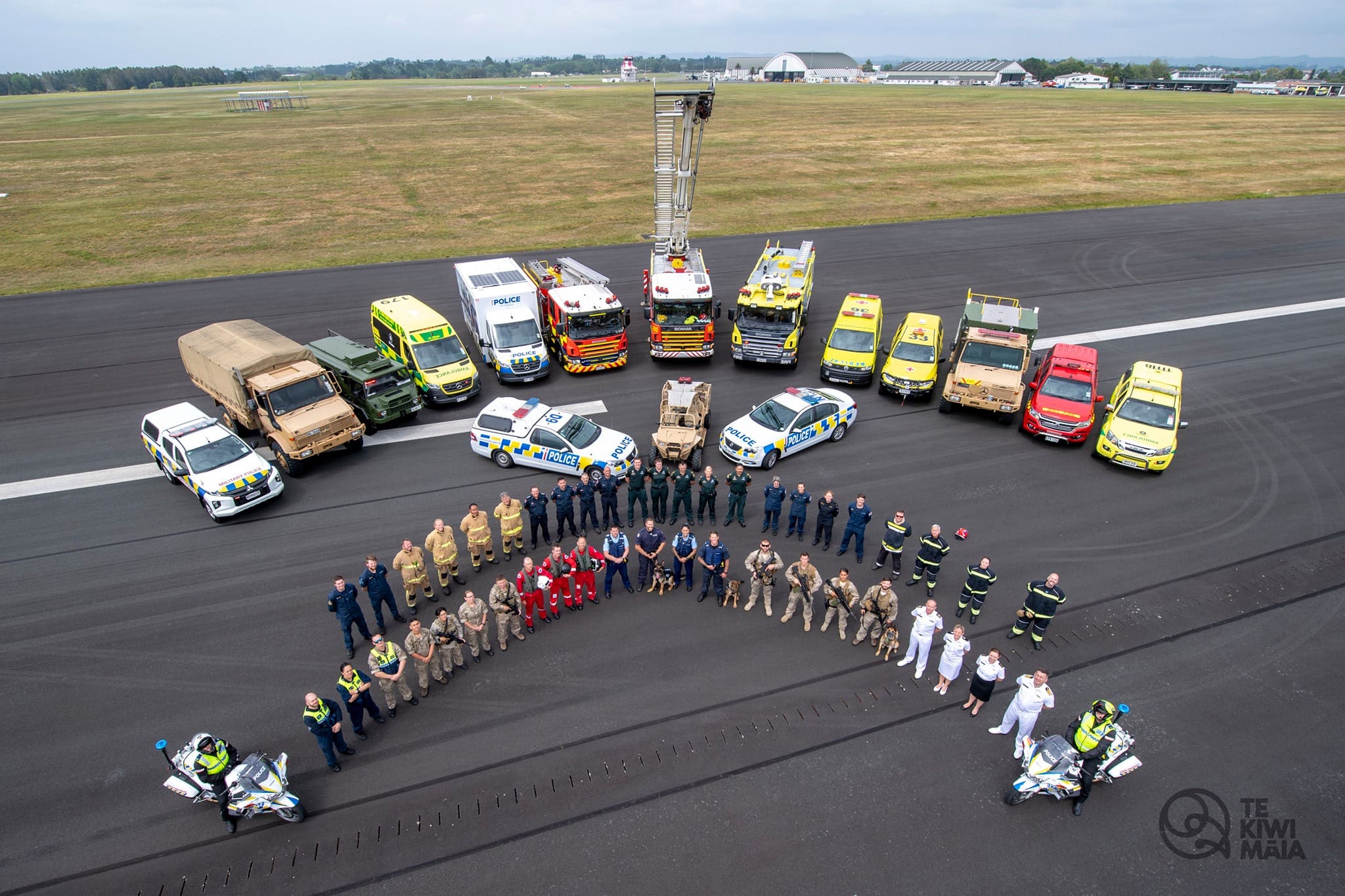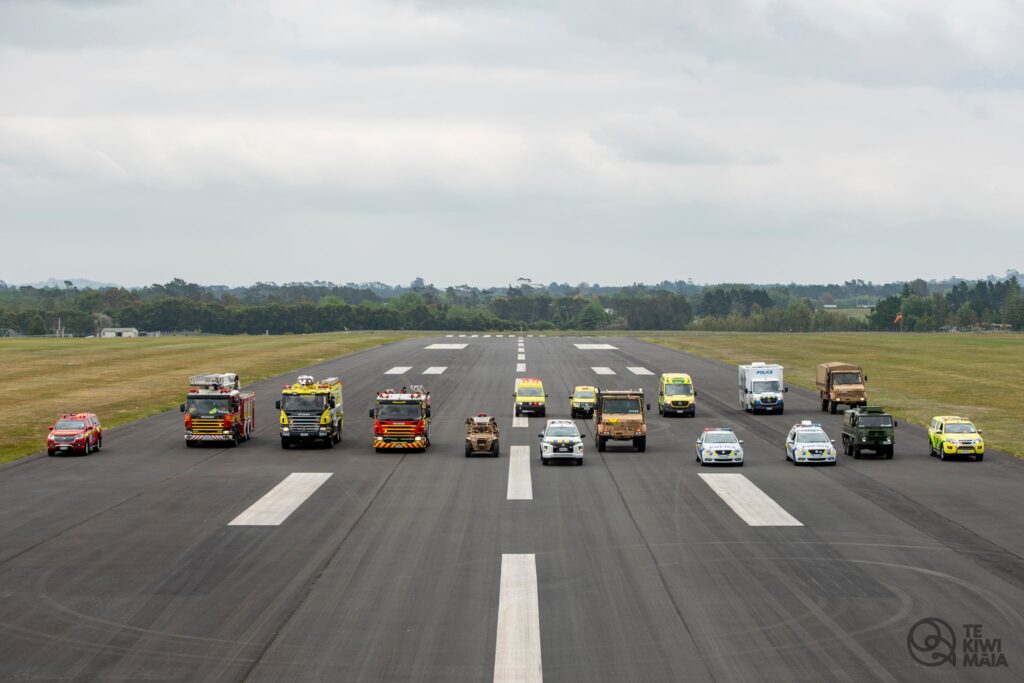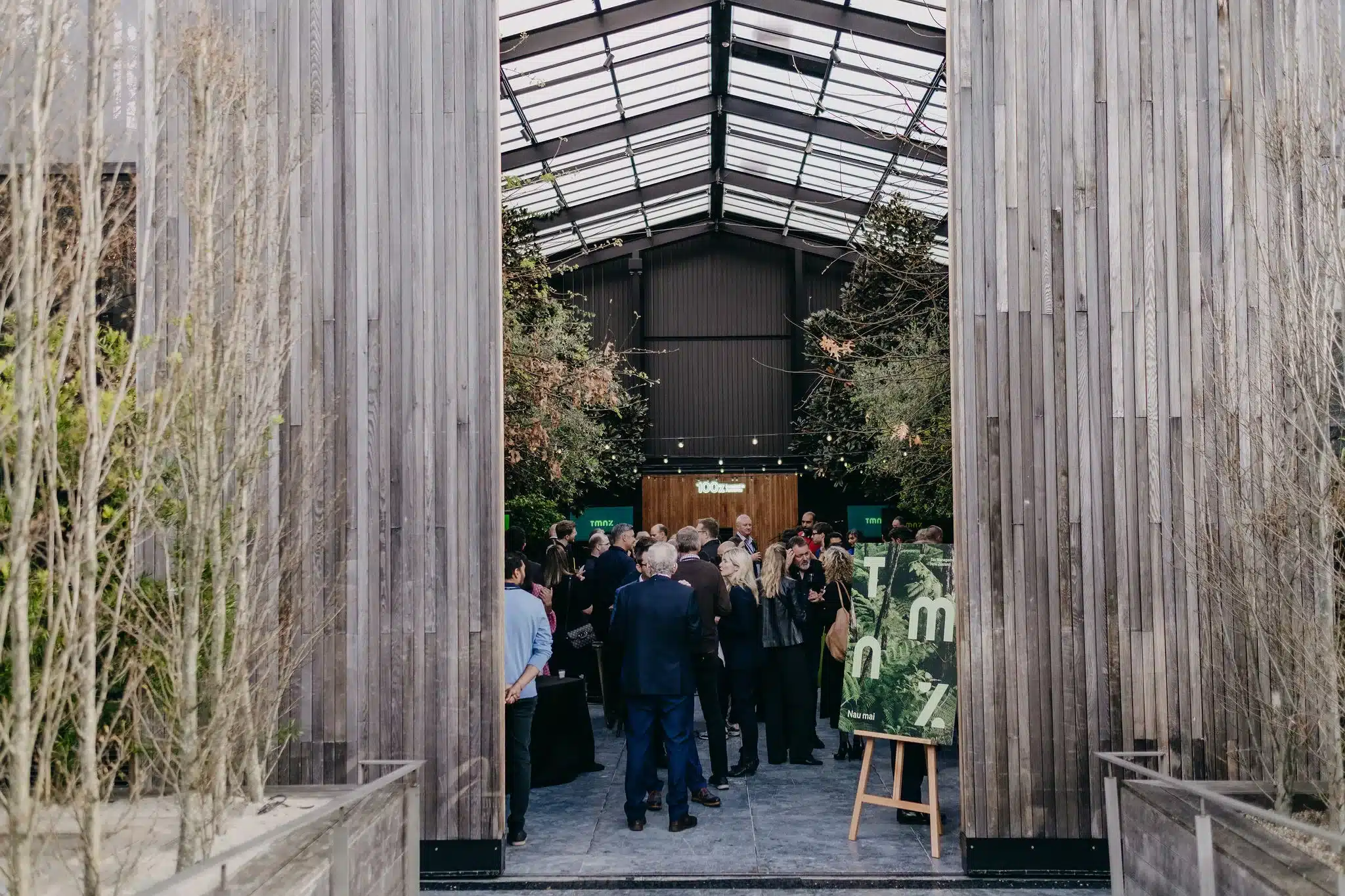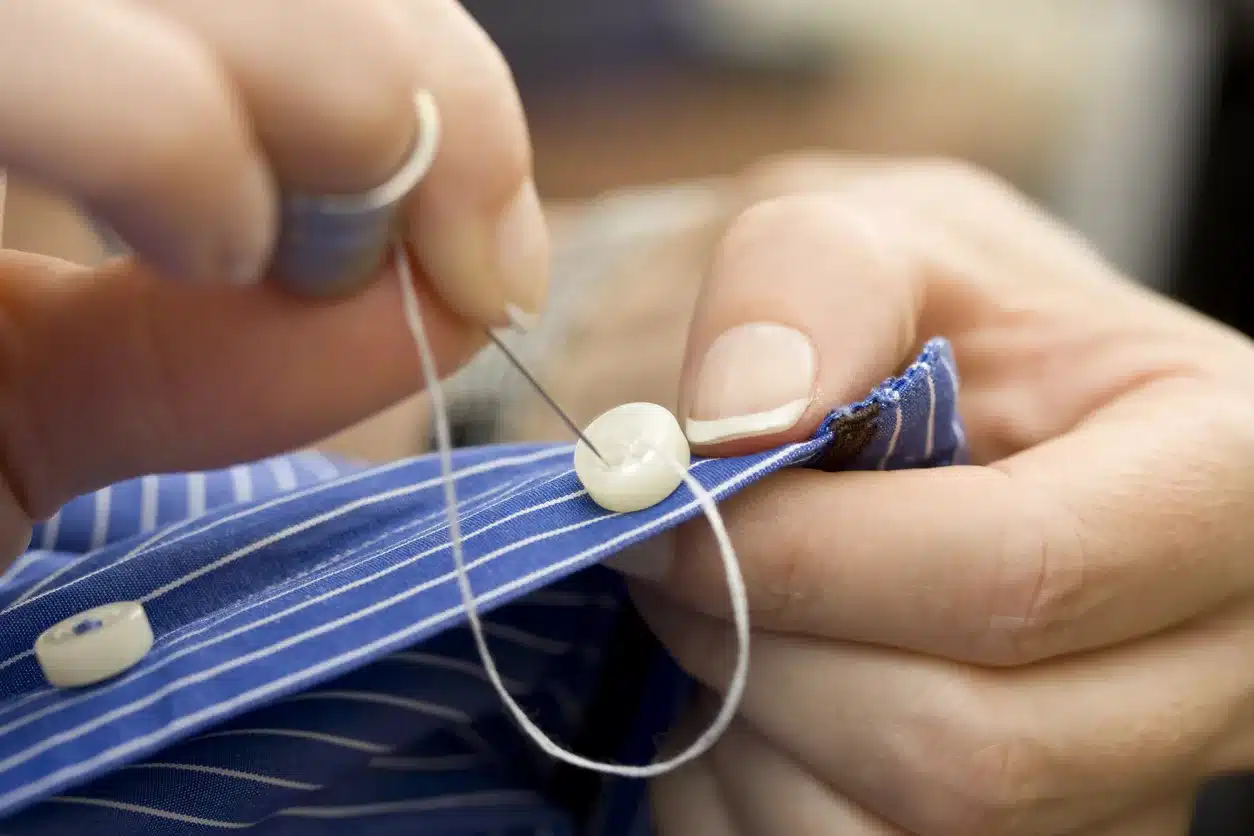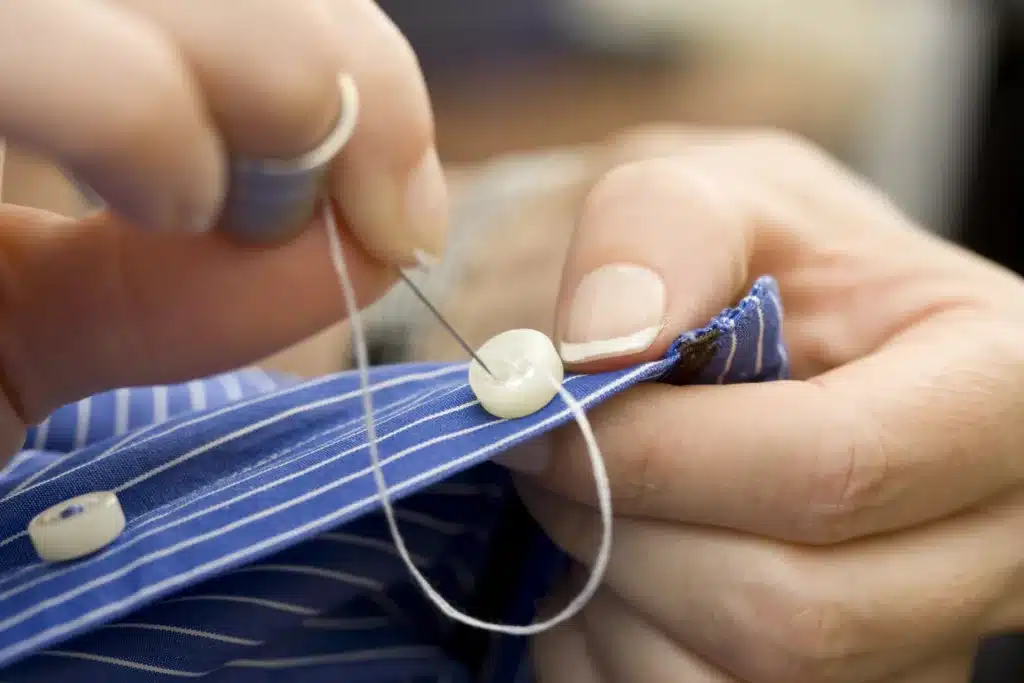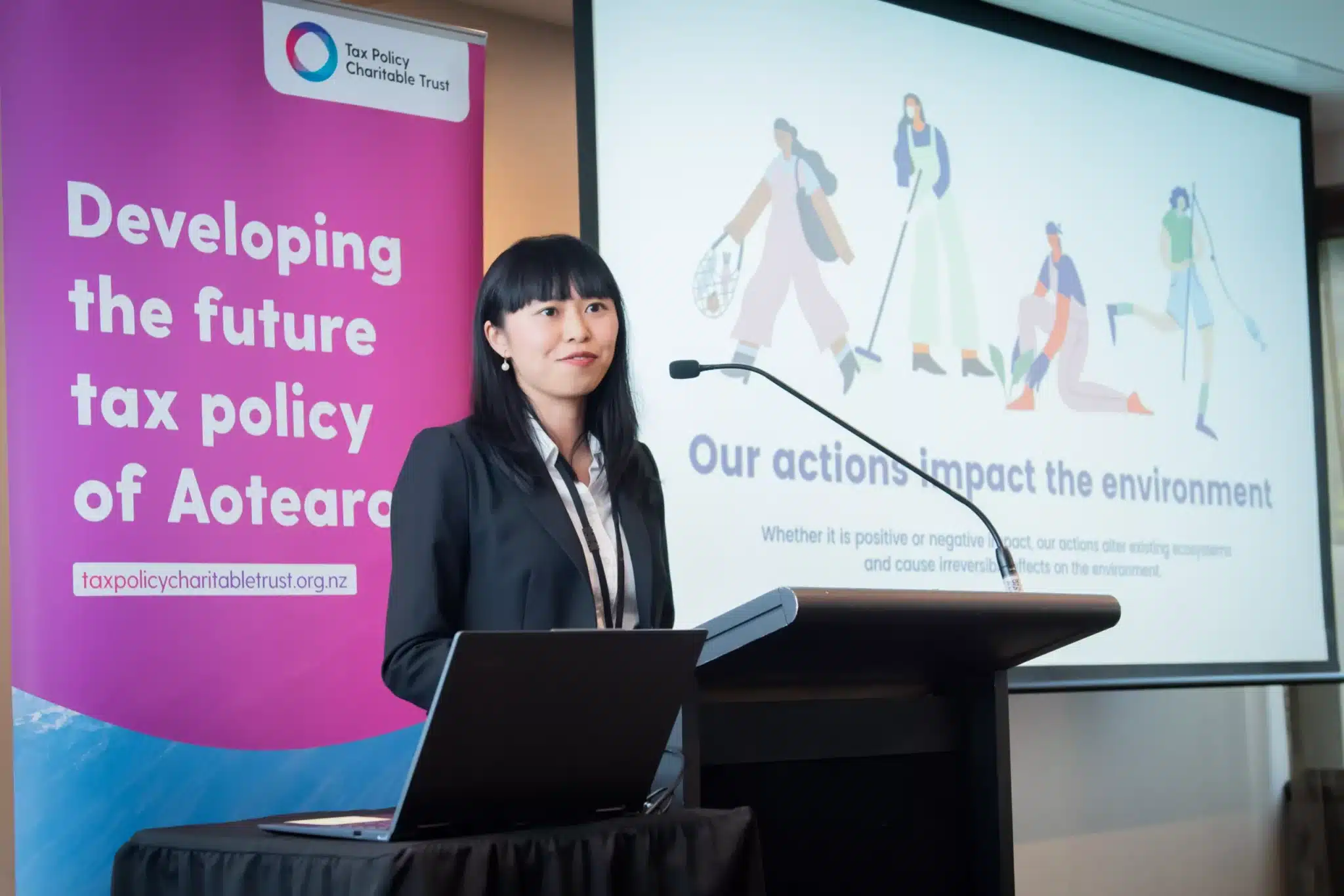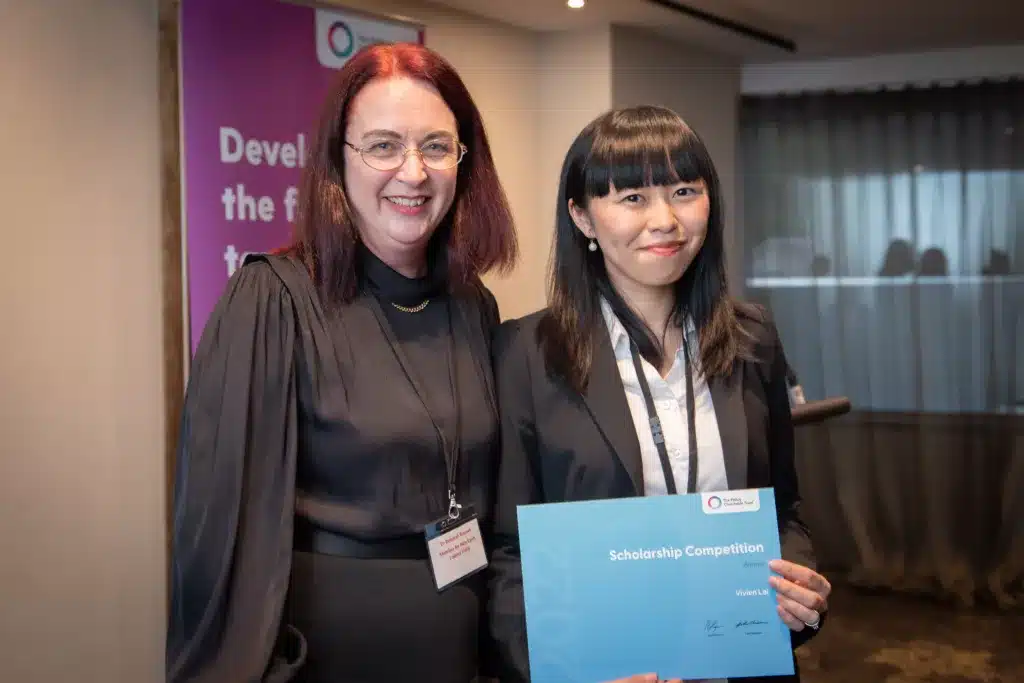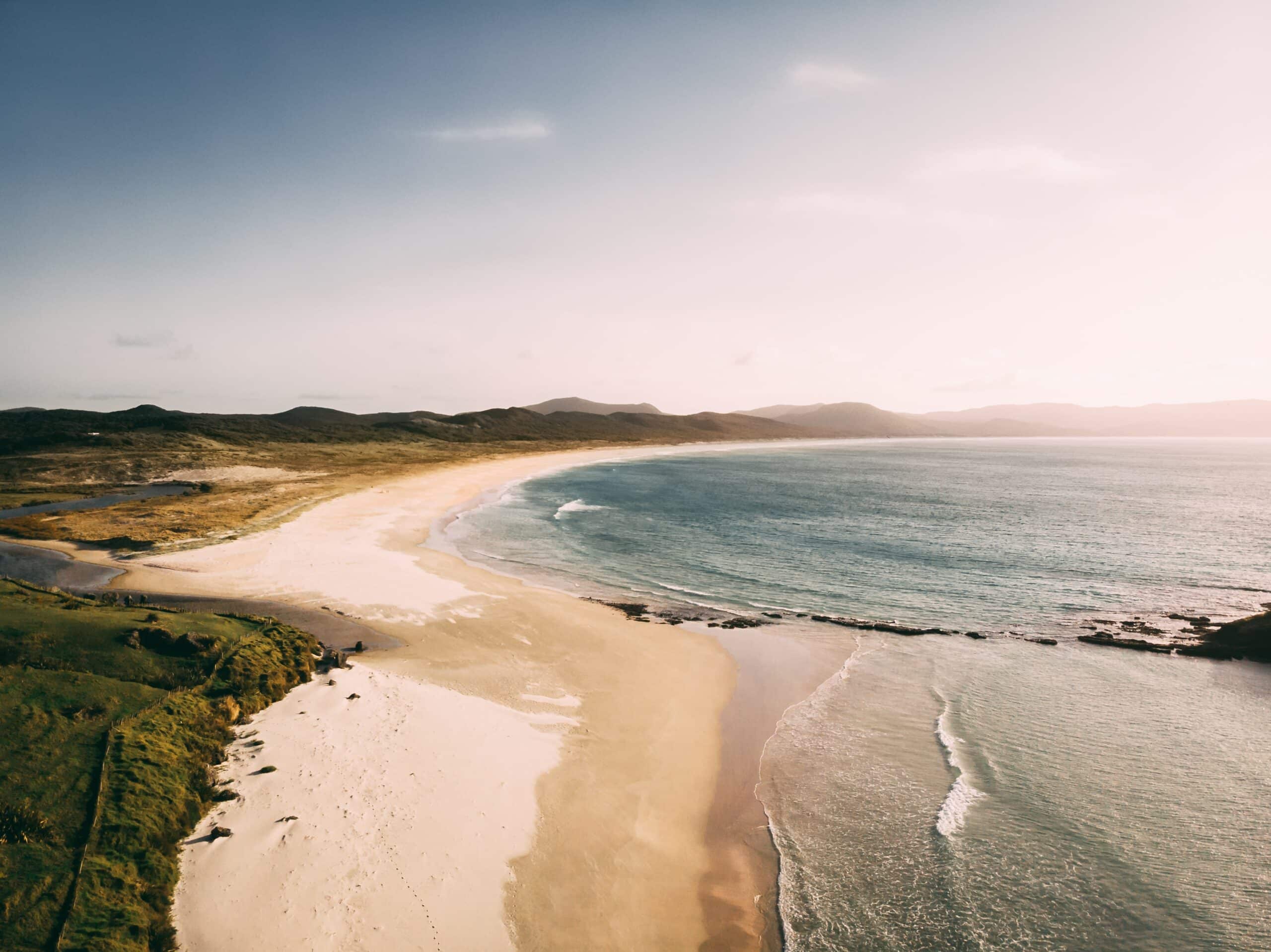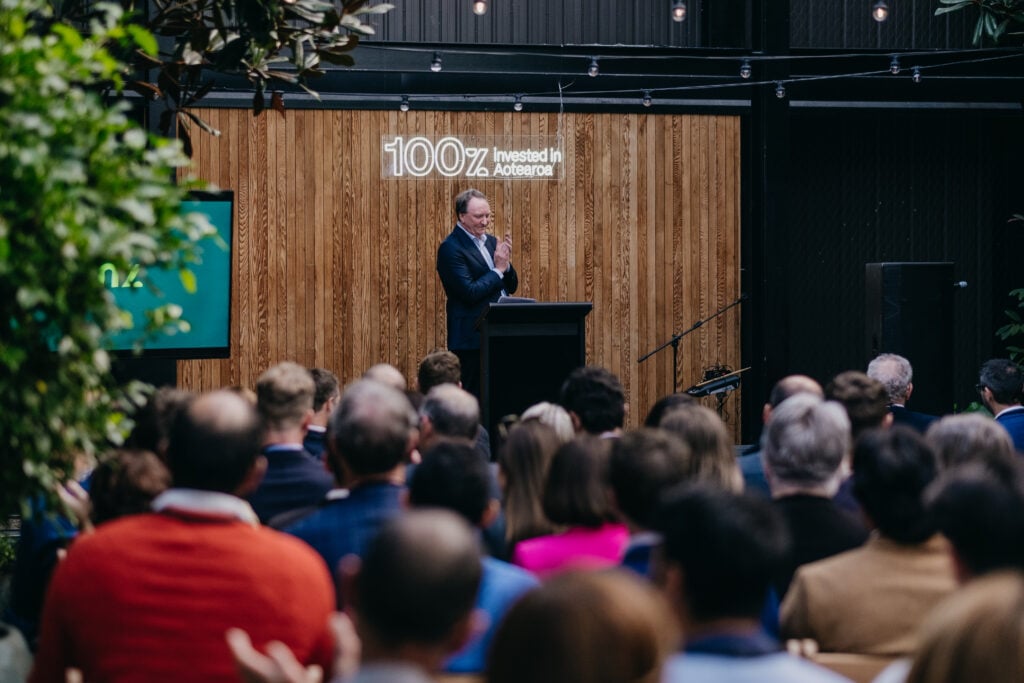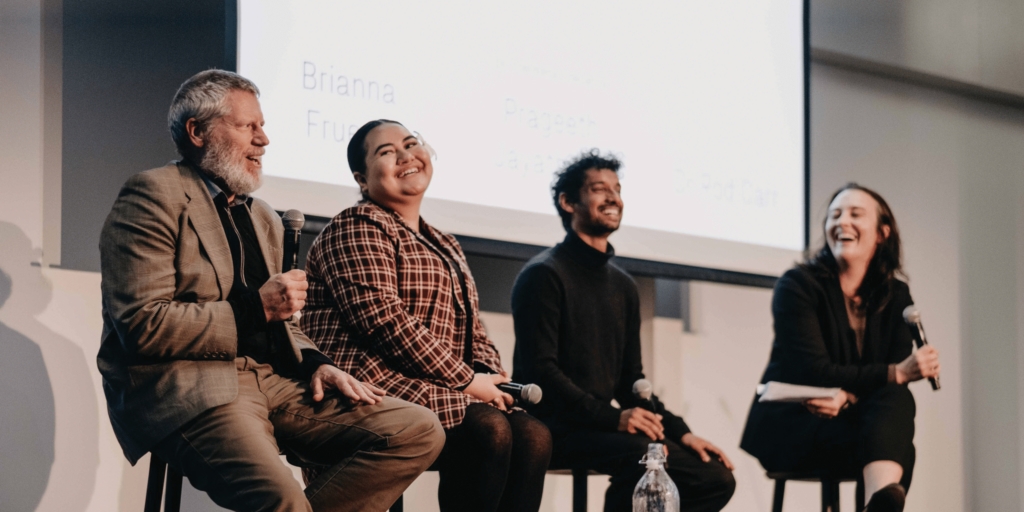AUT Living Labs - Impact Story
“In the face of mounting environmental and climate crises, education has a key role to play in developing and sharing solutions that learn from and work with nature. Universities must adapt and innovate to respond to these challenges, to create new learning experiences and new ways to make research relevant for local communities. The AUT Living Labs grew out of a desire to radically rethink the roles and responsibilities of research and learning.”
Dr David Hall, Principal Investigator, AUT Living Labs
Planting a seed is but one step in growing a tree. Beyond sunlight and soil, a sapling requires tending and protection to grow.
This lesson in nurture can be applied to both trees and students at the Auckland University of Technology (AUT) Living Labs, as the programme fosters student learning, establishes meaningful partnerships and empowers young people with practical skills for climate action.
Living Laboratories is an AUT programme born from the vision of climate change policy researcher Dr David Hall, Prof Hannah Buckley and Assoc Prof Brad Case and taught by project-lead Jeff Silby. Established to see rangatahi nurture and grow a vision for a restored Aotearoa, the Learning from Nature initiative — as a part of their Living Labs programme — gives school students and staff the opportunity to undertake research while working with mana whenua on restoration projects.
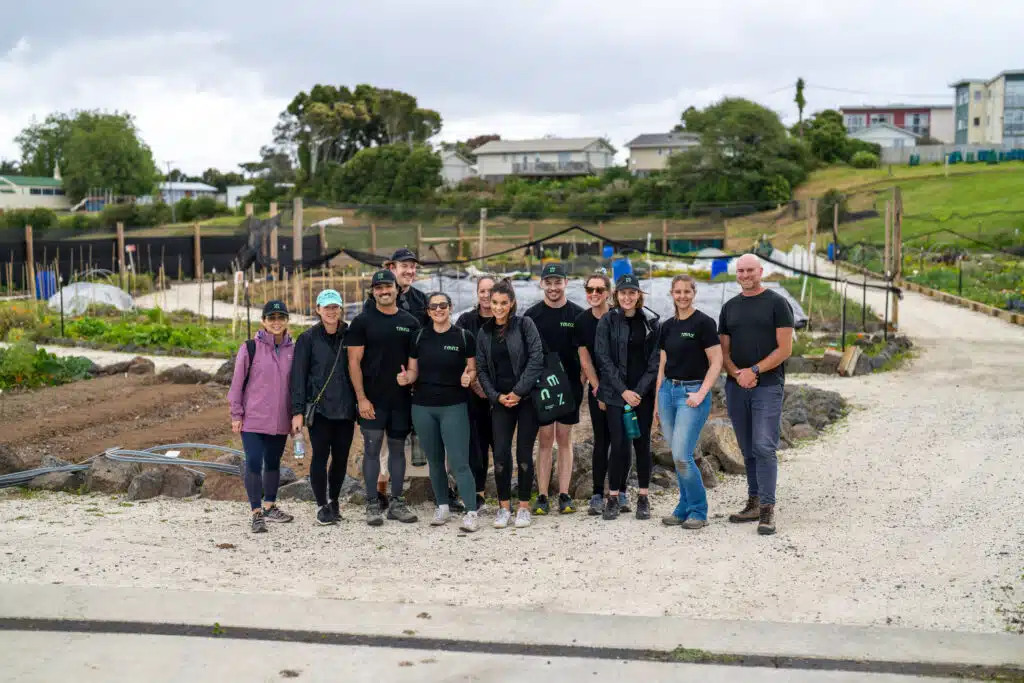
Established in 2019, the programme transforms former agricultural sites into vibrant “Living Labs” that combine learning and meaningful restoration work — such as planting trees, monitoring growth, measuring the impact of weather patterns and learning about the different types of native plants that form a part of the unique ecosystems of Aotearoa. Their first site on Ngāti Whātua Ōrākei land in Pourewa serves as an outdoor classroom that connects people to nature by interweaving ecological science and mātauranga Māori.
With support from Whakatupu Aotearoa Foundation (funded by TMNZ), the Learning from Nature initiative aims to share knowledge not only about restoring ecological sites, but also to foster a deeper connection to the land. This shift from ‘living labs’ to ‘living classrooms’ will support students to become active, informed, and environmentally conscious citizens.
“For secondary school students, this is an opportunity for work experience, career development and transferrable skills – from simple skills of using a tape measure to using sophisticated tools like GIS integrated mapping. For younger students, the opportunity is to spark curiosity and passion for native species, to create exposure to our natural environment, and to increase familiarity with the mātauranga of our iwi and hapū partners.”
Jeff Silby, Project Lead and Teacher, AUT Living Labs
The project is also deepening the research and evidence base for Aotearoa-specific Nature-Based Solutions. With hands-in-the-soil experiments, they’re investigating how to restore native forests in a fast, cost-effective and risk-free way. This research directly addresses the objectives outlined in the New Zealand Government’s 2022 Emissions Reduction Plan and National Adaptation Plan, which highlight the importance of Nature-Based Solutions in protecting, restoring, managing and creating native ecosystems.
The Learning from Nature initiative also plays a crucial role in preparing students for the growing restoration economy. By offering education in Nature-Based Solutions, it equips students for careers in areas of restoration and regeneration. This will meet increasing demand for professional restoration and landscape design, as well as enhance the impact of voluntary and community-led restoration.
With start-up funding from Whakatupu Aotearoa Foundation, Jeff and the Living Labs team were able to extend the programme’s reach to primary and secondary schools, providing eco-educational experiences for over 650 students, 53 teachers and support staff, as well as 32 parent/community helpers. There is also ongoing development of an Educators’ Toolkit to extend programme learnings nation-wide.
AUT Living Labs represents a bold vision for the intersection of education and environmental stewardship. Catalysed by the support from Whakatupu Aotearoa Foundation, the programme’s Learning from Nature initiative continues to expand its reach and impact, having well surpassed their Year One target of 500 educational experiences. By integrating hands-on learning experiences, which interweave Western ecological sciences with mātauranga Māori, the programme is cultivating shared knowledge and future collaboration.
Ko te piko o te māhuri, tērā te tupu o te rākau.
The way in which the young sapling is nurtured (bent), determines how the tree will grow.
By the numbers
As at April 2024
650
student participation
9500
trees in the ground
$158k
invested in the first year by Whakatupu Aotearoa Foundation
NZ Food Waste Champions 12.3 – Kai Commitment - Impact story
“As New Zealanders, we would hate to know how much [food] waste there is so this is about fundamentally reversing something that just does not sit within New Zealand culture.”
Former Prime Minister, Rt Hon Jacinda Ardern – speaking at the launch of Kai Commitment
One third of food produced globally is wasted. This is equivalent to 1.3 billion tonnes of food that is never eaten. When food is thrown away, it can produce harmful emissions in landfill. It also wastes the energy, fuel and dollars that went into producing it in the first place.
And the wasteful situation within industry is mirrored at home. In New Zealand, 157,398 tonnes of edible food are thrown into household bins each year. This typically ends up in landfill and can produce approximately 409,234 tonnes of carbon-equivalent emissions annually.
Our attitude to food has become unnecessarily disposable and in considering the statistics it’s unsurprising then that reducing food waste has been ranked as the third best global solution in addressing climate change. This is a powerful motivator for action and the greatest gains in reducing food waste start with addressing industry systems.
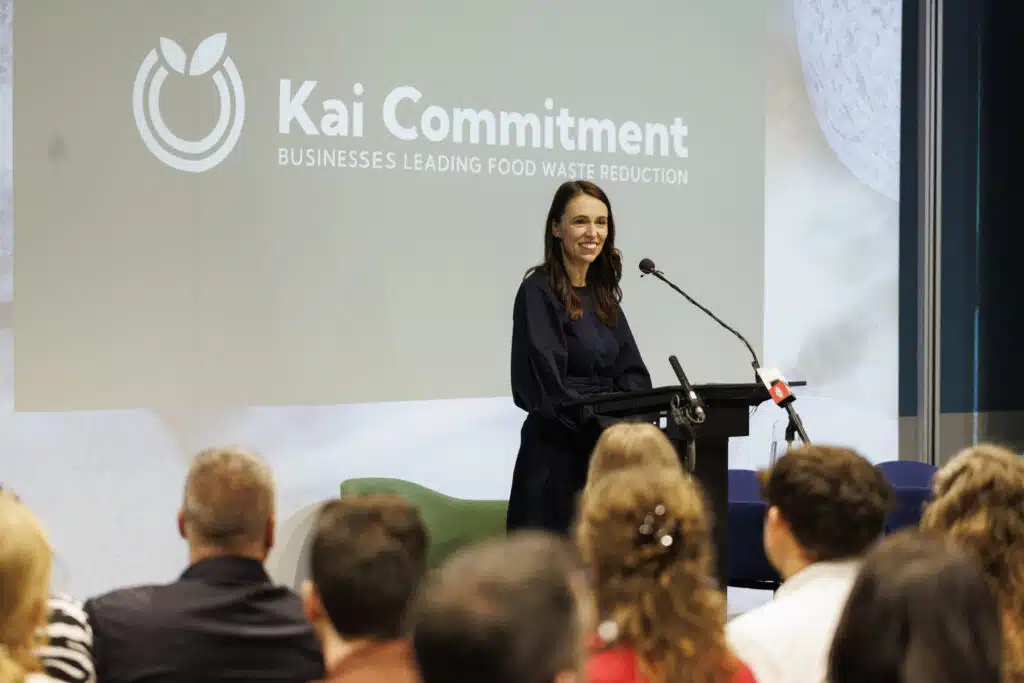
Having researched international responses to the problem, New Zealand Food Waste Champions 12.3 Charitable Trust (NZFWC 12.3) was launched in March 2020 with the ambition of radically reducing food waste and the associated environmental impacts. Kai Commitment is a voluntary agreement between leading food business in Aotearoa who have committed to measuring and reducing their food waste and associated emissions. It is the start of something big and a sign that businesses are seeking to tackle the issue proactively.
It was the opportunity to catalyse a system change in the way we manage and measure food waste that inspired Whakatupu Aotearoa Foundation to back NZFWC 12.3 and the Kai Commitment. The impact on the climate is clear – food waste is a big problem that can be solved through achievable actions. The road leading up to Kai Commitment has required broad and sophisticated discussion. Ultimately, everyone wants to do the right thing but it has been difficult to know where to start.
NZFWC is to be the independent convenor of a national, co-designed and industry-led agreement using internationally proven framework where food businesses will:
- Set common food waste target(s);
- Measure and record food waste data; and
- Take action to extend their food waste reduction initiatives above business as usual.
- Collaborate on food waste reduction across the supply chain.
Kaitlin Dawson is leading the initiative at NZFWC with support from Miranda Mirosa, Director of the University of Otago Food Waste Innovation Research Theme, and Deborah Manning, Founder of Kiwi Harvest and NZ Food Network. Both are NZFWC 12.3 Board Members.
Kaitlin brings a long-standing passion for reducing waste and believes the success of Kai Commitment will come from teamwork. “Food waste is a design flaw, it occurs at every stage in the process which is why collaboration from across the sector is not only desired, but also necessary. The programme and vision we have for a future where collaboration is the norm, will mend the breakdowns from farm to fork. We are confident that if food waste can be designed in, it can be designed out and will achieve environmental and economic value.”
The Kai Commitment will support the individual food waste reduction actions of each signatory, encourage collaboration and innovation, and evolve into a community of best practice to build sector capability. The launch of Kai commitment occurred in November 2022 at signatory Fonterra’s Auckland office. Goodman Fielder, Countdown, Silver Fern Farms, Foodstuffs, AS Wilcox and Nestle were also in attendance as committed business, and New Zealand’s then Prime Minister Rt Hon Jacinda Ardern gave the main address. Kai Commitment is off to a solid start in helping NZFWC 12.3 achieve their goal of halving food waste in Aotearoa by 2030.
The vision of NZ Food Waste Champions 12.3 (NZFWC 12.3) is He Taonga Te Kai – an Aotearoa where food is valued, not wasted. Their mission is to progress SDG Target 12.3, to end food loss and waste across the New Zealand food system.
By the numbers
As at March 2023
2030
target year to halve food waste in New Zealand
6
businesses signed up
$90k
our investment
Mindful Money - Impact Story
“If we can change the way money flows, we can change our future for the better. By shifting investments away from fossil fuels and into renewable energy, for example, we set in motion potential exponential growth in ventures that can bring energy security, improved health outcomes, environmental benefits and financial returns. Who wouldn’t want that?”
Barry Coates, Founder – Mindful Money
New Zealand is the only place in the world where investments made through third party companies, such as KiwiSaver, can be scrutinised. That said, the information has been hard to find and even harder to interpret. You might need a Master’s Degree from Yale University to extract the detail from this financial rabbit hole, and to be able to properly assess it. Fortunately, economist Barry Coates, Founder of Mindful Money, has those skills and he assembled a team of willing volunteers to get the job done for us.
“Even when we can see a list of named companies that KiwiSavers have invested in, it might not be clear what they do. And they could be investing in other funds, and so on, until it is impossible to see the companies they actually invest in,” says Barry.
This dedicated endeavour marked the start of Mindful Money, launched in 2019 with Rt Hon Grant Robertson in attendance. Barry and his team have quickly made progress finding out what KiwiSaver funds are really invested in, and then included all the retail investment funds. There are now 800 funds analysed on the Mindful Money website.
In 2019, the team at Mindful Money exposed a whopping $130M total investment by KiwiSavers in nuclear weapons. As something that is utterly at odds with our collective and historic identity, Barry decided to give KiwiSaver fund managers a window to take action ahead of naming the companies publicly. In a year, this had dropped to $52M and then to around $15M. Now it is less than $10M.
These revelations continued when Mindful Money published a list of all of the New Zealand funds invested in companies aligned to the Putin regime. They all sold those investments. And in 2023, Mindful Money uncovered a further 88 KiwiSaver funds investing in companies whose activities benefitted the Myanmar military, who are responsible for massive human rights violations. Again, Mindful Money are checking to ensure that these funds are shifted before releasing names.
Transparency and accountability are huge drivers for change, but what about positively enabling proactive choice? Empowering Kiwis with the tools to access information on their investments – in a manageable way – via the Mindful Money website means they can move their funds away from fossil fuels, weapons or animal cruelty if they want to and instead invest in the issues they really want to see – such as social housing, renewable energy, forest regeneration.
It was at this juncture, when Barry was seeking to increase the number of investment options that create social and environmental good, that he connected with Whakatupu Aotearoa Foundation through mutual friends at the Centre for Sustainable Finance. Mindful Money were already making great progress on generating transparency in the investment market, but it was clear that if more Kiwis and fund managers were looking for positive investment options, Mindful Money should be playing a proactive role in signposting some solid options.
Whakatupu Aotearoa Foundation was keen to see Barry take this next step in changing how the money flows, using it as a lever in bringing social and environmental impact alongside financial returns. The potential here seemed huge, but it would need some dedicated resource for research. The Foundation has funded a new role of Investment Manager at Mindful Money, taken on by financial expert Justine Sefton.
“We have traditionally been working with a culture of investing broadly and safely in known entities, which is why fossil fuels persist as assets in KiwiSaver portfolios,” explains Justine. “The truth is fossil fuels aren’t bringing the financial returns that they used to. They are not the future. We need to invest in smarter technologies and systems that have greater potential to bring about the kind of equitable financial, environmental and social future that we actually want and need.”
Barry and Justine are interviewing fund managers and researching the market with the aim of putting more investment options in front of fund managers. Mindful Money is conscious that they need to be more than whistle blowers, and that generating avenues for impact investment is equally part of their wheelhouse. Investors not only want to avoid harm, they want opportunities for their investments to create positive benefits.
Mindful Money has already provided fund information – free of charge – to 349 KiwiSaver Funds and 453 Investment Funds. They have set a target for New Zealand investment in positive impact of $100M.
By the numbers
As at April 2023
302k
Kiwis checked their funds on Mindful Money’s website
$165m
diverted to ethical funds so far
$50k
invested by Whakatupu Aotearoa Foundation
Te Kiwi Māia - Impact Story
“It is my role to help people remember the fallen. But I want to do all I can help our first responders and military service personnel, so that they are supported in their recovery when they’re impacted in the line of duty. It is the least we can do when they knowingly give so much of themselves.”
Rebecca Nelson, Co-Founder – Te Kiwi Māia and Official Singer of the Royal New Zealand Navy
Who is looking after the wellbeing of those who look after us? From minor accidents to natural disasters, nearly all of us will, at some point in our lives, call for help. Our emergency first responders – be they Police, Fire and Emergency, St John’s Ambulance, Coastguard, Navy or Army – all work towards a shared primary goal of helping people and saving lives.
The individual jobs can look quite different, but for those on the front line it will involve interacting with people in their darkest hours. Exposure to someone else’s trauma leaves a lasting impression, because as humans we are not immune to the suffering of others. Training prepares people for the theory of a thing, but the physical and mental impact from responding to crisis or conflict can go beyond the realms of theoretical comprehension.
An aspect of building resilient communities is creating support systems that consider all of us. Including those who dedicate their careers to supporting others. In the UK, an example of this is Help for Heroes, a charity set up to care for retired servicepeople who are suffering the physical and mental effects of war and crisis. Until recently, nothing like that existed in Aotearoa.
Rebecca Nelson is a reservist and official singer of the Royal New Zealand Navy. Over the years, she has made many friends who work on the front lines, and she has made it her mission to see that people are supported and help is offered. This goes beyond the Navy to all to first responders who, for example, may have been digging through the rubble of earthquakes, searching for survivors at sea, responding to accidents on our roads or even managing 111 calls from desperate Kiwis.
“As a singer I celebrate and raise awareness of the work of our military and first responders, but I needed to do more,” says Rebecca. In 2019 she joined forces with friends and colleagues Megan Mashali and James Burt to co-found Te Kiwi Māia, with the aim of working with public services to identify employees who have been exposed to major trauma through their work. And then to provide psychological, physiological and cultural therapy.
“We spent the first year recruiting people onto our Advisory Board. This means all the emergency services are represented alongside specialist skills in health, governance, finance and legal expertise. Then we started designing our recovery retreats. Access to nature is a big part of that and in 2022 we ran our first programmes, which as seen 24 people get the help they needed. And that is both physical and mental support.”
In the early days of 2019, Whakatupu Aotearoa Foundation connected with Rebecca over a coffee to discuss goals, pathways and set-up costs. It was clear that there was a gap in the system. The wrap-around support that Rebecca outlined was inspirational and as a country we are a step behind international efforts to care for those on our frontlines. With so many national and international crises unfolding, from pandemics to floods and earthquakes, our emergency responders are exhausted.
The programme from Te Kiwi Māia runs over six days and includes workshops and one-to-one sessions. Participants have access to personal trainers, psychologists, nutritionists and cultural support. Vaughan Park in Auckland’s Long Bay hosted the first gatherings in 2022. The plan, however, is for Te Kiwi Māia to have a dedicated space that is even more nature focussed.
“We are a community of first responders,” says Rebecca. “Participants arrive together and leave together, and support can be both shared and tailored throughout. Te Kiwi Māia can be holistic in the experience it provides and being close to our natural landscapes is so important for that. It is restorative, grounding and helps us to reconnect.”
Te Kiwi Māia looked at international examples of sector-based responses and created a more comprehensive support system for impacted first responders in Aotearoa. The focus is connecting people across the spectrum of emergency roles. Responding, whatever shape that takes, is the common ground.
By the numbers
As at March 2023
24
supported first responders
8
events
$20k
our investment
TMNZ celebrates 20 years of investing in innovation
TMNZ turns 20 in April, celebrating two decades of innovation as the world’s first ever tax pool. Ingenuity and creative thinking have always been part of our DNA.
TMNZ started out as an idea. Our founder Ian Kuperus, who worked for Inland Revenue and in the banking industry, recognised way back in the 1980s that businesses and the tax department were struggling with managing provisional tax payments.
The problem was felt on both sides. Businesses didn’t know how much tax they needed to pay and nearly always ended up with a Use of Money Interest exposure which most businesses viewed as a “Use of Money Penalty”. Inland Revenue, on the other hand, had the dilemma of charging one interest rate to all taxpayers, which meant that large businesses were paying up to 14% interest when their normal borrowing cost was 7%. The situation was messy.
Ian came up with a clever solution — which would allow businesses to trade their over and underpayments and thereby reduce their interest costs.
After unsuccessfully pitching the concept to Trevor de Cleene. Minister of Revenue at the time, the idea went quiet for several years. Then, in 2001, IR issued a discussion document – “More Time for Business” that included a number of ideas to improve the provisional tax system. One of its suggestions? A tax pool.
A world first
If at first you don’t succeed, try, try again. Following IR’s review, Ian explored numerous business concepts – involving joint ventures with accounting firms, banks and other financial organisations. Eventually, he went out on his own, and in 2003, TMNZ was born.
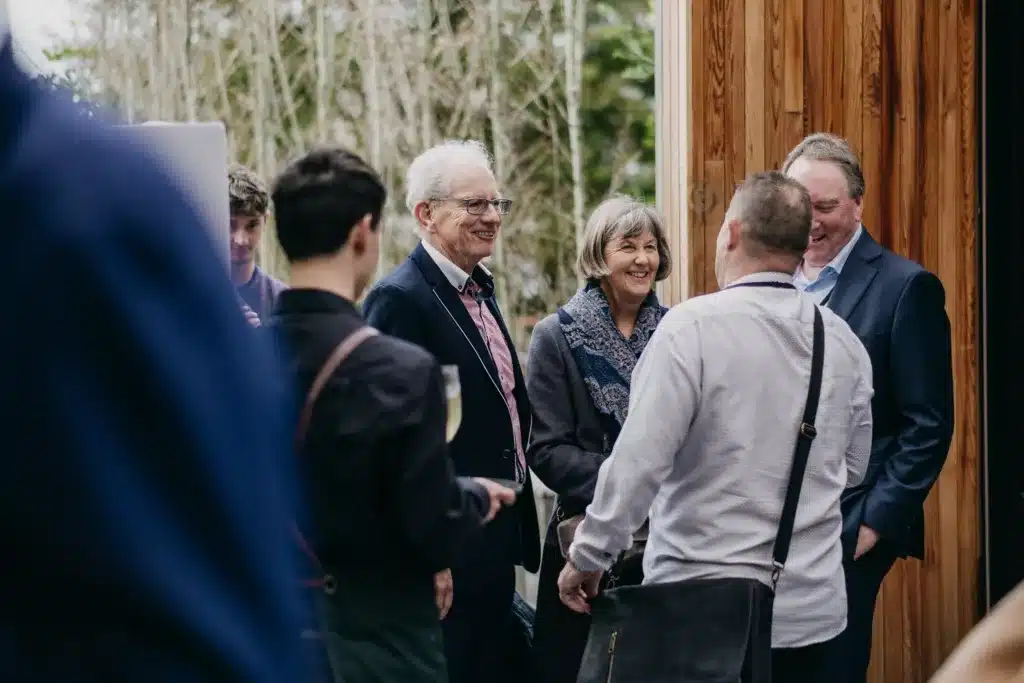
Ian says his time working for IR, The National Bank, The Dairy Board and Fonterra gave him a unique perspective on New Zealand’s tax problems, and says he was motivated to make life easier for Kiwi businesses.
“I’m a passionate believer in the value of business creating employment and livelihood for individuals, their families, and communities,” he says. “I’ve always had a desire to improve things.”
He’s proud to have played a role in New Zealand’s rich history of innovation as an integral figure in the evolution of our tax system. For this reason, Ian was recognised as EY Entrepreneur of The Year category winner in 2013, for business and social entrepreneurship.
“To be involved in something that has improved the functioning of the tax system has been very rewarding. It’s great to be part of that era of reform that started in the 80s.”
Ian has always had a strong sense of purpose and community. So, it was no surprise that his business would give back to Aotearoa.
Being the change
One of TMNZ’s values is ‘be the change’, and this has been reflected in our philanthropic endeavours over the years.
“Since the beginning, we’ve always had an element of giving back and contributing,” Ian explains. “That’s always been part of our mission, but a couple of years ago we decided to go a step further and commit all of our profits to a Foundation.”
In 2019, Ian and his wife, Wendy, established Whakatupu Aotearoa Foundation to continue their legacy. TMNZ’s profits are now entirely dedicated to Whakatupu Aotearoa Foundation’s charitable and philanthropic mission, and our goals and objectives are now closely aligned with the causes we care about.
The Foundation invests bravely. It tests ideas that have the potential to create system change and improve our environment and communities. This is ‘venture philanthropy’.
The Foundation backs smart new ideas and works alongside talented project leads, helping them develop so they can bring others on board. The Foundation aims to tackle climate change and support marginalised and disadvantaged communities.
“These are two areas where there are significant needs,” Ian says. “There’s a great opportunity to make a difference, particularly with climate change, where we are running against the clock.”
The Auckland Climate Festival grew out of early funding from the Foundation and is now preparing for its third year. Mindful Fashion New Zealand is uniting businesses from the industry to reduce waste and operate more regeneratively, thanks to seed funding from the Foundation.
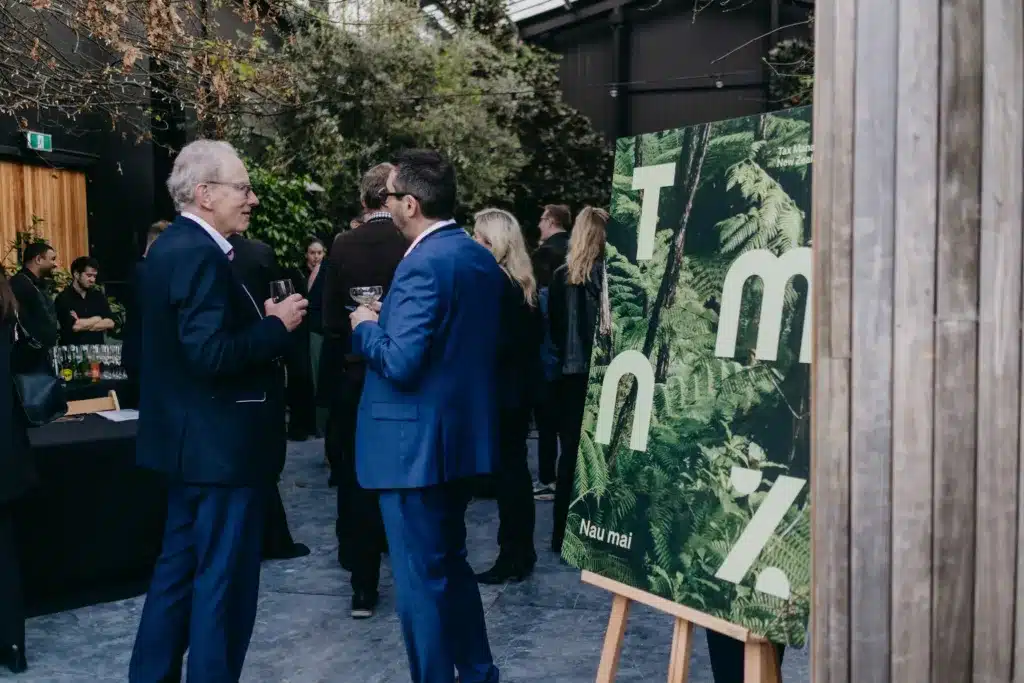
Helping other Kiwi innovators
Innovation plays an important role in tackling today’s major challenges in New Zealand, whether that’s climate change, natural disasters, health and wellbeing or economic prosperity.
“We’re proud to be helping to provide a cashflow boost to Kiwi innovators, so they can continue their important work,” says Ian.
TMNZ is administering Research and Development Tax Incentive (RDTI) in-year payments on behalf of the Government, providing businesses with regular cash payments towards R&D costs.
Launched in March, this world-first payments system enables businesses to receive 15% credit on eligible research and development expenditure as regular payments, rather than having to wait until after the end of the tax year.
Early-stage startups and other pre-profit research and development businesses are set to benefit the most from this interest-free loan solution, which provides cashflow boosts throughout the year.
This new R&D tax approach has landed exactly 20 years after TMNZ launched its global-first tax payment solution.
An innovative future
Looking back over the past two decades, Ian has learnt some valuable lessons about bringing business ideas to life.
So, what makes a successful innovator?
“It’s a combination of things,” Ian explains. “Being in a position where you’re prepared to take some risks, and having a vision of a better world or better business environment. Also, being prepared to engage with others and to allow your thinking to evolve.”
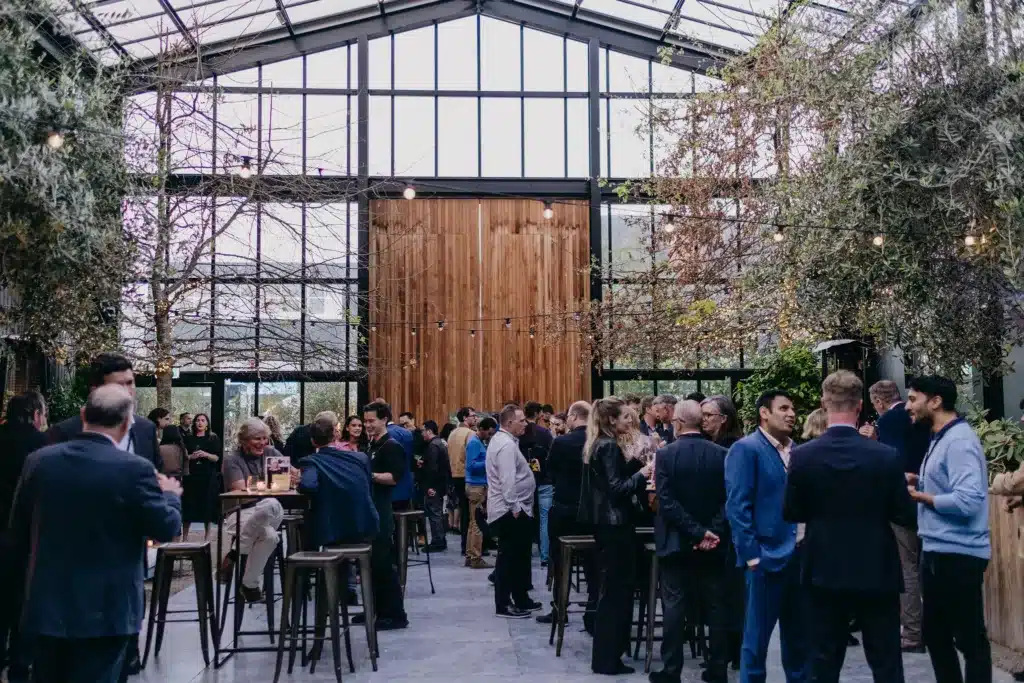
We’d like to thank all of our clients, partners, and employees who have supported us since 2003. As we look forward to the next 20 years, we’ll continue our commitment to investing in innovation.
Ian remains focused on inspiring the next generation of tax industry innovators at TMNZ.
“Knowing that we can carry on a tradition of innovation gives me great satisfaction. My role now is to continue fostering the right culture and environment for our team to continue their game-changing work.”
Mindful Fashion - Impact Story
“In New Zealand, approximately 45,000 tonnes of apparel is sent to landfill every year, made up of a whole range of clothing from different sources. That’s a lot of textile waste and it’s a problem because we know it releases a disproportionate amount of carbon emissions as it breaks down. Mindful Fashion has over 80 members who all believe in a more sustainable future for the industry. But, we’ve got a bigger problem in that we don’t, at a country level, have a system to deal with textile waste. This is something we are talking to the Government about addressing at a national level. ” – Jacinta FitzGerald, Programme Director, Mindful Fashion, speaking on Radio New Zealand
Each garment holds its own story; from design through to fabric creation, dyeing, cutting, sewing, finishing and selling. It can journey around the world in this time, consuming energy and water as it goes. The same items are worn less, if at all, contributing to vast quantities of textile-based landfill.
The New Zealand fashion industry faces enormous challenges to dramatically decarbonise, regenerate natural systems and reduce waste from its activities, while at the same time continuing to inspire and clothe consumers. However, there has been no clear vision for a low carbon, circular and regenerative clothing and fashion system in New Zealand and no pathway to guide the industry in this transition.
An area of particular importance for this sector is the circular economy; designing out waste, pollution, greenhouse gases, and keeping safe and clean materials in circulation. It means using new techniques to disrupt and improve supply chains and business models, and investing in people and communities that can make this possible.
In response to the current state of play, Mindful Fashion designed the New Zealand Fashion Industry Climate Action Programme, which was kickstarted by funding from Whakatupu Aotearoa Foundation. This led to further support from the Ministry for the Environment | Manatū Mō Te Taiao. It has been co-developed with carbon measurement and offset specialist Ekos and it is open to all of the fashion industry.
“As consumers we’re buying more clothes than ever and wearing them less than ever, and the industry is feeding these habits. So, the challenge is both to change buyer behaviour and disrupt the industry – because this can’t go on,” says Yii Petrus, Programme Director for Whakatupu Aotearoa Foundation. “I have seen Jacinta take the lead in this space. She has quickly become a national spokesperson for sustainable fashion in Aotearoa due to the pace at which she has gathered support from the industry. She is collaborating with leaders who are seeking solutions and it is an inspiring movement to be part of,” says Yii.
“We know that globally the fashion industry is a huge contributor to carbon emissions. Our action-oriented programme will build capability and use collective action to drive reductions over time. This is a programme the entire fashion and textiles industry can get behind, and frankly it must if we are to meet global targets.” – Jacinta FitzGerald, Programme Director, Mindful Fashion
With support from Whakatupu Aotearoa Foundation, Jacinta has worked with industry, national and international stakeholders to develop an NZ fashion industry programme and high-level roadmap, to drive climate action. She has campaigned across the sector to establish crucial partnerships and signatories and is seeking ways to incentivise participation from the wider industry.
The roadmap identifies a staged approach to climate-positive action that all players in the industry, from textile suppliers to machinists to retailers, can follow. The people, processes and channels are all touchpoints for sustainability and emissions reduction, and product stewardship is central to success. Through Mindful Fashion, members can gain knowledge and upskill in sustainability, and find ways to take action to lower their emissions throughout their supply chain with industry specific guidance and tools.
As the only industry body for the sector in Aotearoa, Mindful Fashion is uniquely positioned to drive the collaboration required to build a sustainable and thriving future for our fashion and textiles.
By the numbers
As at December 2022
9
workshops and events
80+
signatories
$80k
our investment
Inspirational idea wins Tax Policy Scholarship Competition
A game-changing idea to fight climate change won this year’s Tax Policy Charitable Trust Scholarship.
Each year, the Tax Policy Charitable Trust (supported by TMNZ) awards a scholarship to celebrate the brightest young minds in the industry, and 2022’s submissions were as inspirational as ever.
Entrants were invited to submit ideas that could transform New Zealand’s tax landscape, looking at either environmental taxation, tax administration, or the powers granted to the Commissioner of Inland Revenue to collect information.
The competition, open to people aged 35 and under, generated progressive and innovative ideas from the industry’s young leaders. In the end, one entrant was selected as this year’s winner for her outstanding approach to New Zealand’s tax and environmental challenges.
And the winner is....
Vivien Lei, Group Tax Advisor at Fisher & Paykel Healthcare, won this year’s scholarship for her submission to introduce Impact Weighted Taxation in New Zealand, an innovative idea that would see businesses pay taxes based on their environmental impact.
A panel of leading industry professionals judged Lei’s proposal as the winner among a strong field of candidates. Mitchell Fraser, Daniel Doughty, and Jordan Yates were also celebrated as finalists in the competition.
Lei was crowned the winner at the Tax Policy Charitable Trust’s finals evening on October 19, after each finalist presented their idea to an audience of industry professionals.
Trust Chair John Shewan said the judges were “delighted to see passion and energy behind the submissions and supporting presentations”.
Lei, who received a $10,000 cash prize, described the competition as “an amazing experience”.
“You don't often get many opportunities to think creatively about tax policy, so this was a nice space to do that,” Lei says. “Being able to develop my policy thinking and talk to some of the leading experts was really great — and winning was a huge surprise!”
This year was Lei’s second attempt to win the scholarship following an earlier submission in 2019. Her perseverance and positive attitude paid off.
“I entered when I was still very green in my career,” she says. “Since then, I’ve been mentored by amazing people who have helped with my development, particularly Rachael Bull, Head of Tax at Fisher & Paykel Healthcare, and Joseph Chueh who fostered my interest in tax policy. I was grateful to have their support this time around.”
Tax to fight the climate threat
Lei’s background in the social impact sector and personal concerns about the environment informed her submission idea.
“These are the most difficult problems of our time,” she says. “I’m hoping my idea will bring the conversation to the fore and spark other young minds in our industry to think about how tax might influence positive environmental outcomes.”
The Tax Policy Scholarship Competition is proudly supported by TMNZ, which invests 100% of its profits back into the environment and community, through strategic philanthropic partner, Whakatupu Aotearoa Foundation. Lei believes that tax professionals can help to build a better future for Aotearoa.
“It’s scary to think about the trajectory we are on with our natural capital, so it’s important for our industry to think of ways to help,” she adds.
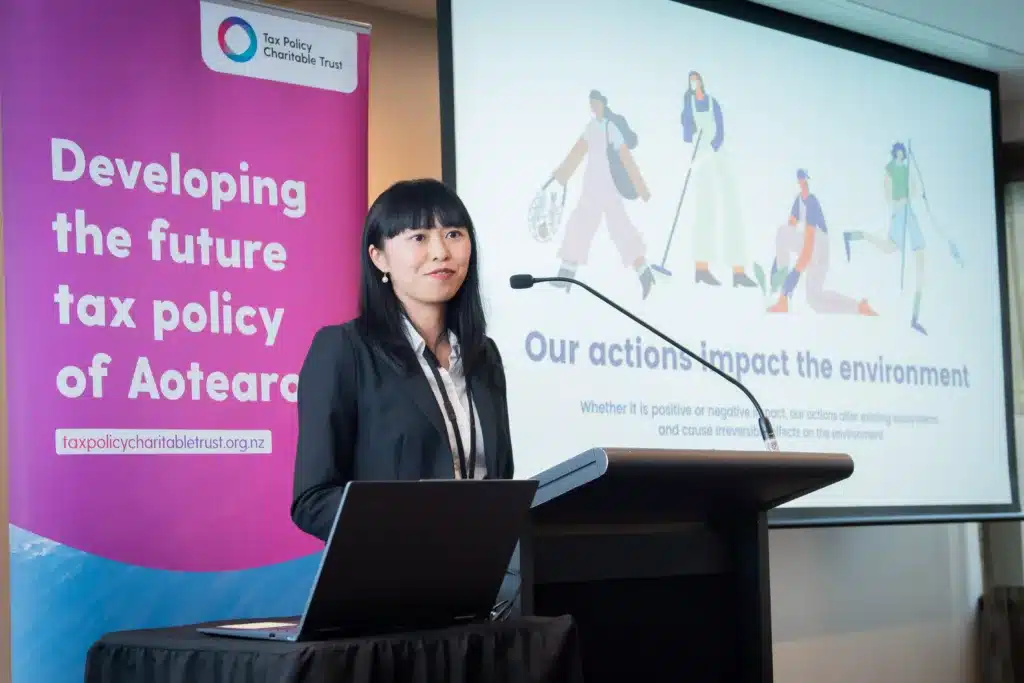
Inspiring future tax leaders
Tax Policy Scholarship Competition Judges commented that this year’s entrants will inspire future generations as well as today’s professionals.
“This competition is all about supporting and inspiring future tax policy leaders. The results from this year and from earlier years’ competitions reflect the presence of emerging talent that will ensure the continuation of leading tax policy research and thinking in New Zealand,” said the judges.
Find out more about the Tax Policy Scholarship Competition here.
Upside Youth Mentoring - Impact Story
“Mentoring is a circuit breaker that can be life changing for young people. Introducing a consistent and positive role model into the lives of struggling 9 to 13-year-olds gives them the hope, confidence and ambition to choose a different path.” – Jenny Horst, Chief Executive, Upside
Upside works with schools to identify young people who are showing signs of hardship or where a difficult homelife is manifesting in troubled behaviour in the classroom. This early window of intervention can make a difference to the rest of their lives.
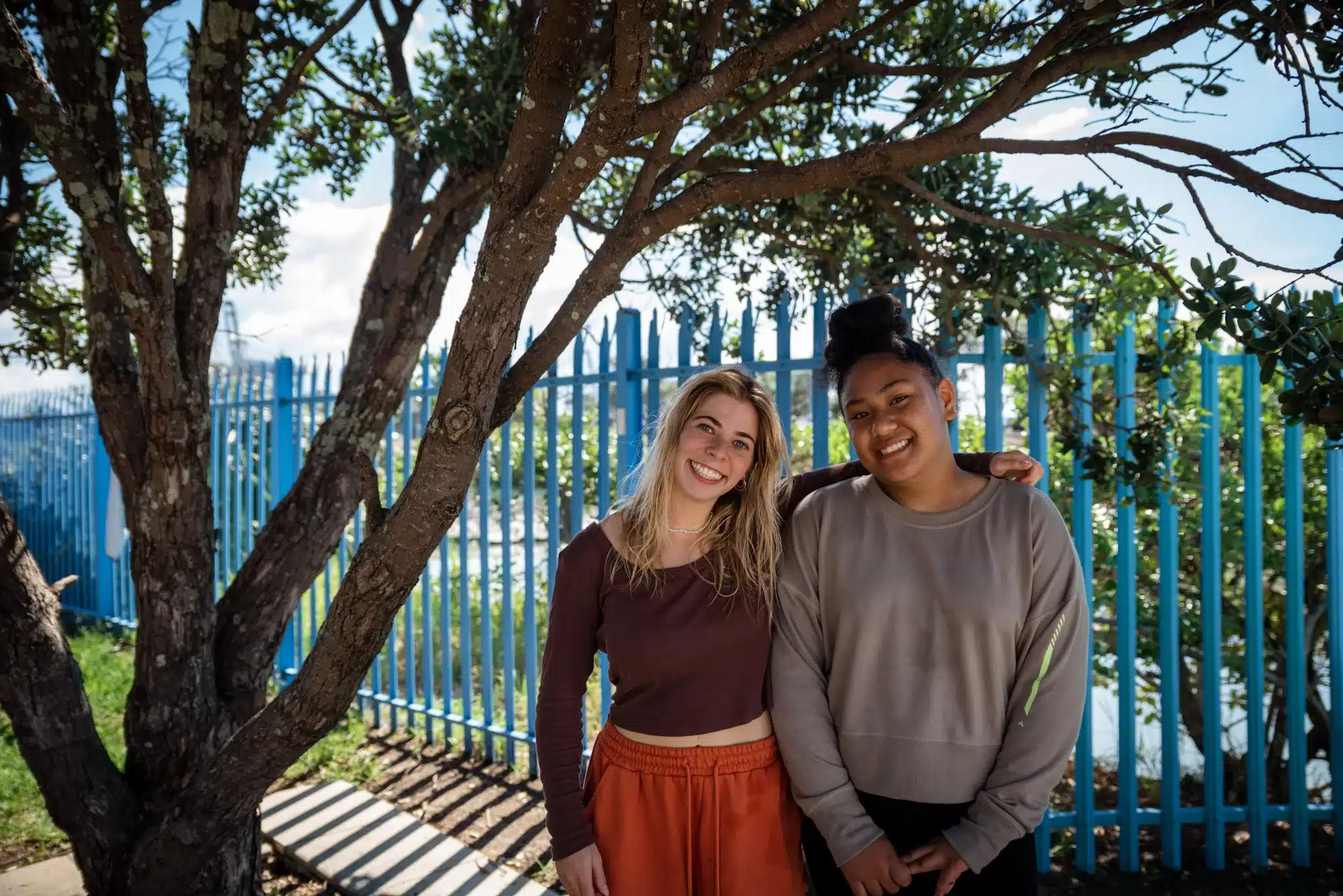
The charity came about in 2006 through the combined efforts of co-founders John Newman, Bill Grayson and Dave Robertson. The trio carry a sustained belief that showing up for young people, through mentorship, at the early signs of trouble can give them a chance in their life that, so far, may not have had much chance at all.
Since then, over a thousand young people have been personally supported through the programme, which sees them meeting with an assigned volunteer mentor once a week for a year. It has a 90% success rate (those matches who reach 12 months in their journey together), often leading to a long-term bond.
Until 2021, income was predominantly from grants, with some individual donors, making funding uncertain and planning for the future a challenge. The organisation was growing, so achieving more reliable and diversified income was important. Broadening funding sources was a key strategic goal identified by the organisation to ensure sustainable service delivery and growth. Whakatupu Aotearoa Foundation supported Upside to achieve their strategy, resulting in the recruitment of a Fundraising Manager to generate a more sustainable income stream. Rachel Clarke was hired and her skills in fundraising and marketing have changed Upside’s future.
Whakatupu Aotearoa Foundation is a catalytic funder and seeks to support organisations to generate greater impact and more robust operational models. “Upside was keen to develop its income mix to provide a diverse and reliable position for planning. However, getting the funds to build this capacity is always a challenge. Fundraising for activity that is not part of a charities’ core work is hard, but we view this as strategic and a way to support the team on their journey to delivering outstanding results for disadvantaged young people.” says Carl Vink, Chief Executive of the Foundation. “We were able to provide upfront support for their initiative with progress payments during the project to support the milestones being achieved.”
The Upside team had the confidence to push ahead and recruit a fundraising role and develop their approach and strategy. The investment has paid off and they now have a broader and deeper income mix with enhanced relationships and ultimately more sustainable income streams.
For every dollar invested in Upside, $4.70 of social returns are achieved. This is according to ImpactLab, who have quantified the harm that has been avoided and the good created from Upside’s youth mentoring programme.
“Upside is also catalytic in its nature; early intervention in the lives of young people brings hope and opportunity into an otherwise darkening future. We saw a chance to uplift their work through venture philanthropy; to de-risk an investment in skills that could grow their work. It is exactly where we are positioned as a funding partner,” says Carl.
Research shows 84% of young people that Upside is working with have experienced some form of neglect, nearly all are in living in poverty, almost half have experienced violence and 33% were at risk of suicide. Understanding the situation for young people, as well as how Upside is making a difference is another important part of Rachel’s job. “By undertaking research, we can communicate what is happening in the lives of young people and how the tools and experiences we offer can support them in building a brighter future. It helps funders understand that, through investing in us, we can make a real difference together,” says Rachel.
Upside have gone on to share their programme with others, such as Springboard Community Works, who use the Upside Youth Mentoring model in their own work, bringing even more positive options into young lives.
For every dollar invested in Upside, $4.70 of social returns are achieved. This is according to ImpactLab, who have quantified the harm that has been avoided and the good created from Upside’s youth mentoring programme.
By the numbers
As at January 2023
7,000+
annual volunteer hours
1,000+
young people reached
$98,500
our investment
TMNZ: 100% invested in a better Aotearoa
We’re proud to invest 100% of our profits in Whakatupu Aotearoa Foundation to help the environment and community. We have a shared goal to help build a better Aotearoa and make a difference to our people and planet. Discover how working with TMNZ enables us to achieve our goals.
Nearly 20 years after we broke the mould as the world’s first tax pool, we’re reimagining what it means to be a purpose-driven business by investing our profits back into the people and environment of Aotearoa through the Foundation.
In 2003, TMNZ was born, from a desire to help improve the tax environment for New Zealanders. Our founder Ian Kuperus created the first ever tax pooling intermediary in April that year, becoming the first mover in an innovative, uncharted industry.
Our company has evolved significantly since then.
Now operating a pool of up to $10 billion, we have supported more than 100,000 taxpayers. Over the decades, we have helped countless businesses and sole traders better manage their Inland Revenue tax payments, making the provisional tax system easier for New Zealanders to navigate.
Aside from driving tax innovation, philanthropy has always been a significant part of our story. Here’s how it has informed our past, and how it will influence our future.
Our history of giving
In the early days of TMNZ, our founders Ian and Wendy Kuperus had a strong philanthropic vision; to support organisations reaching communities across Aotearoa, making a difference in the lives of New Zealanders. For many years they donated significantly through their private charitable foundation, sharing the stories of impact with people along their journey.
Ian and Wendy stepped back from the day-to-day running of our business in 2011, but over the past 11 years, their ambition to make Aotearoa a better place has strengthened. With the growing pressures on our environment and social challenges in our communities, their goal of making an impact has grown.
As more people and businesses join our tax pool each year and our business continues to grow, we have increased our efforts to ensure we make a difference with our profits and benefit New Zealanders for generations to come.
In 2020, Ian and Wendy decided they would commit the profit of the business to Whakatupu Aotearoa Foundation to support philanthropy and charitable initiatives. They wanted to enable TMNZ to help drive change in New Zealand and create something that would leave a lasting legacy, addressing some of the key issues facing our country.
How Whakatupu Aotearoa Foundation works
Whakatupu Aotearoa Foundation was established in 2020 to continue the great work of our founders. All of TMNZ’s profits are directed towards Whakatupu Aotearoa Foundation to support philanthropic and impactful initiatives, and our goals and objectives as a business and Foundation are more closely aligned than ever. Everything we do as a company is designed to give back to New Zealand.
The Foundation and TMNZ have a vision for a restored and thriving Aotearoa. Our business generates profits and resources that go towards these strategic philanthropic endeavors. Our people are all engaged in this purpose every day.
Everyone who works at TMNZ is connected to our purpose and the work of our Foundation. Our people know that alongside their day job of making tax more flexible for Kiwis, we have an underlying objective to make a difference to our nation’s future.
Climate change is a significant focus area for the Foundation. We are seeing rapid changes to our environment that pose a threat to our future, our people and our ecosystems. The Foundation also strives to help marginalised and disadvantaged communities, which are more significantly impacted by our nation’s challenges, including the threat of climate change.
Whakatupu Aotearoa Foundation invests in projects that are designed to create lasting impact for our environment and communities. The Foundation seeks to ignite ideas that may not otherwise have been realised and its support is both financial and strategic. People working for the Foundation offer guidance and connect projects to external skills through the Foundation and TMNZ’s broad network.
Whakatupu Aotearoa Foundation is inspired by the entrepreneurial spirit of TMNZ’s founders. As the first tax intermediary in the world, TMNZ took risks to get where it is today, going to places where none had gone before. The Foundation promises to do the same, and help to accelerate change as quickly as possible to tackle complex issues.
How does the Foundation do things differently? By making catalytic investments to help set up projects and platforms such as Live Ocean Foundation. Having seen first-hand through their sailing careers how interconnected the world is through the ocean, and realising the critical need to look after it, yachtsmen Peter Burling and Blair Tuke founded Live Ocean Foundation.
It partners with exceptional New Zealand scientists, innovators and communicators to scale up action for a healthy ocean. New Zealand has the world’s fourth largest ocean area, yet only 0.4% is protected. Oceans are one of our greatest allies in the fight against climate change and we must do more to look after them. Whakatupu Aotearoa Foundation has been supporting Live Ocean from its early days to achieve its goals.
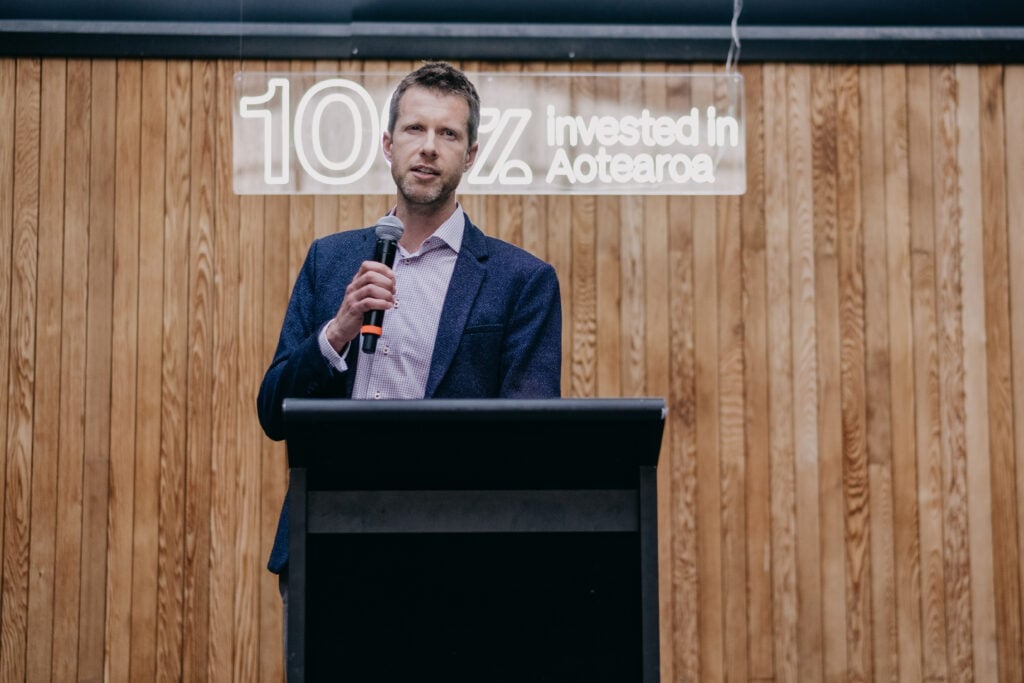
Purpose for our people
We’re proud to be a purpose-led business, investing in our people, clients, communities, and the environment. Our purpose is underpinned by our core values; be socially conscious, be the change, collaborate and connect, and make it easy.
Increasingly, people are looking for purpose in their work, and we are proud to offer each of our employees the chance to donate $1,000 to a registered charity of their choice every year. It’s a small gesture that makes a big difference — our people can personally direct funding to a charity that has affected their lives, or the lives of loved ones.
We give autonomy to our people, enabling them to engage in philanthropy from a personal level and contribute to causes that are meaningful to them, as well as supporting Whakatupu Aotearoa Foundation through their everyday work at TMNZ. The initiative has helped us to learn more about our people and what is important to them as we continue to embed philanthropy into our company.
Becoming more sustainable
In line with our goal to build a restored and thriving Aotearoa New Zealand, at TMNZ and Whakatupu Aotearoa Foundation we have turned the spotlight on ourselves over the past year to deliver a holistic approach to sustainability.
Earlier this year, we moved our headquarters in Auckland to a state-of-the-art sustainable office on 23 Customs Street, putting the environment and our people at the heart of the design.
During the year leading up to the move, we developed our sustainable new headquarters with consideration for climate change, environmental impact and waste mitigation, as well as providing a welcoming space for our people, and clients, and partners of TMNZ and the Foundation.
Engagement sessions with our employees ensured that everyone was involved in the moving process. Every aspect of the design, from flooring to furniture, was chosen with sustainability in mind, with recycled and reused materials incorporated throughout,
The vision was made a reality on moving day in March as we moved into our new home. TMNZ and Whakatupu Aotearoa Foundation have a continued commitment to reducing our environmental footprint, cutting down on waste, and finding new ways to improve on sustainability.
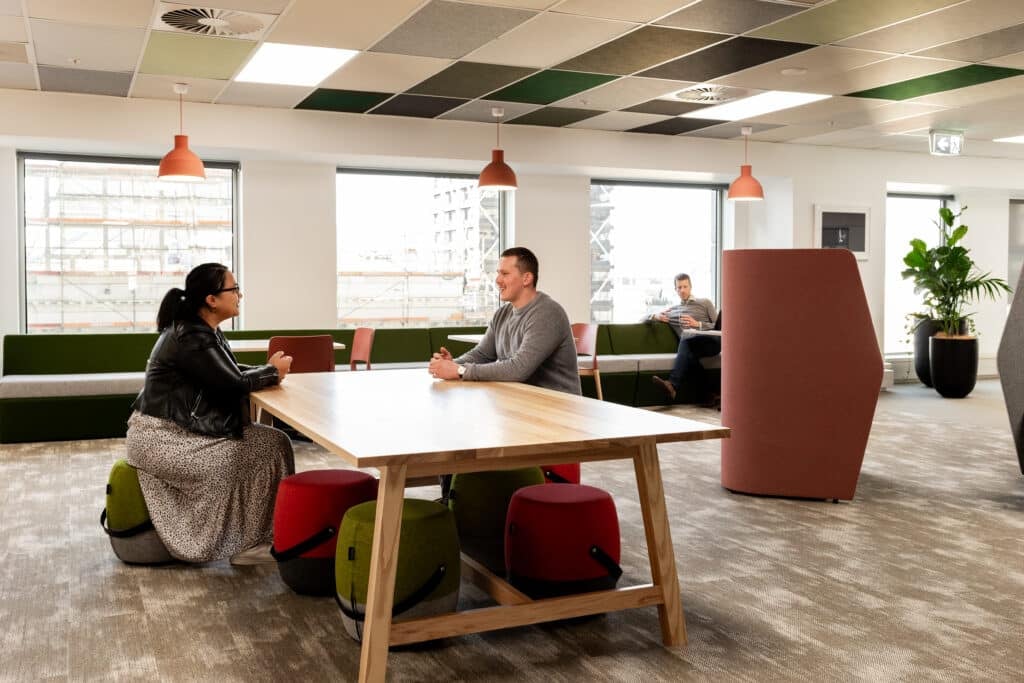
Relentless innovation
True to our values back in 2003, TMNZ remains relentlessly focused on tax innovation and making life easier for our clients. Technology will continue to drive innovation and enhance our services in the years to come.
Our business is in transformation mode, and we will continue to explore new ways to meet our clients’ growing demands.
Already this year, we have introduced Inland Revenue integration for our clients, with the help of Reckon/APS, and sustainable e-signature provider Good Sign. Further innovation is on the way.
We have been selected by Ministry of Business, Innovation and Employment as delivery partner, for the R&D Tax Incentive In-Year Payments Scheme. New Zealand businesses performing eligible R&D will soon be able to access R&D Tax Incentive credits much earlier, with the introduction of in-year payments in 2023. We are excited to be part of a solution that will help R&D companies doing great work to grow our economy.
100% invested in a better Aotearoa
By delivering a great service to our clients, making a profit, and donating to Whakatupu Aotearoa Foundation, we can help to tackle environmental and social challenges, putting our country in a stronger position to face the future with confidence.
Our goal to deliver the best tax solutions for Kiwis won’t change. But the impact we can make will. Whether it’s delivering flexible tax services to our clients, or working with charitable partners to drive change across Aotearoa, both TMNZ and the Foundation are committed to making a positive impact.
By investing our profit back into the Foundation to support its initiatives for the environment and community, our clients, our business, and our Foundation are all in it together.
Carl Vink, Chief Executive of Whakatupu Aotearoa Foundation, says: “It is an exciting journey, that we all are on across TMNZ, the Foundation and our project partners. We are united by taking on the biggest challenges facing our nation. There is no better motivation."
“This is such a unique opportunity to make a difference and infuse the goals of the Foundation into TMNZ,” adds Chris Cunniffe, Chief Executive of TMNZ. “Our business is fully invested in our country.”
Auckland Climate Festival - Impact story
“It is predicted that we will exceed our city’s allocated carbon budget within the next five years under the current scenario. This means, to secure a safe city for future generations and ‘play our part’ on the global stage, we must radically accelerate impactful change across our whole society within this time period. One of the successes of the festival is the ability to bring different parts of society together to help drive and amplify this change together.”
Michelle Kennedy, Founder – Auckland Climate Festival
As Aotearoa’s most populous region, it is the citizens, businesses and communities of Tāmaki Makaurau that will determine the region’s – and ultimately much of the country’s – ability to create a climate-resilient future. The Auckland Climate Festival has shown that those living, working and studying here are up for the challenge. Many are, in a diversity of ways, better understanding their current impact and looking at ways to embed regenerative behaviours.
When Michelle Kennedy returned to her homeland, having worked on London Climate Action Week, she brought with her the ambition to create the same powerful platform in Auckland. Inspiring Kiwis to engage in tackling the greatest issue facing our world and bringing hope into a space that is dominated by narratives of doom and gloom.
Michelle founded Auckland Climate Festival in 2021 and Whakatupu Aotearoa Foundation was right there with her. Getting behind her passion, helping ignite her idea and supporting her both financially and strategically to see more than 70 events take place over several weeks in October. Despite the need to pivot to online gatherings in response to further lockdowns and a year of disruption, people connected. A year on, the number of events nearly doubled with the social energy returning to the room as people met in person in October 2022.
A diverse menu of opportunities for participation, that speak to schools, whānau, businesses and individuals, means there is something for everyone to be inspired by and feel empowered to act on. People have been invigorated at events hosted by community groups talking about composting and food resilience, businesses collaborating and designing low-carbon systems for the corporate world, restaurants delighting diners with sustainable foods, and climate activists raising issues such as how Aotearoa can welcome climate refugees as a result of sea level rise in the Pacific.
The partnership between Michelle and the Foundation is far more than a transactional funding relationship. The critical need at the beginning was for catalytic funding to help establish the project and support the operational team to build momentum. The Foundation’s support came in the form of an initial grant, impact loan and strategy support. Yii Petrus, Whakatupu Aotearoa Foundation’s Programme Director, stepped into a strategic role on the festival’s board. This gave Michelle and her team access to planning advice and connections with the financial, technological and marketing skills to bring about a robust framework for the festival.
“I have been hugely impressed with Michelle’s determination and commitment. She has worked relentlessly to realise her vision for the festival and backing her has been a privilege. In just two years I have seen a community of climate leaders grow around Michelle, setting in motion an accessible, educational and hopeful movement,” says Yii.
By the numbers
As at October 2022
200
events
50k+
people reached
$160k
our investment
